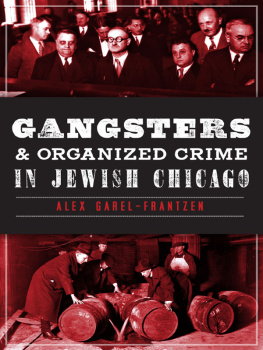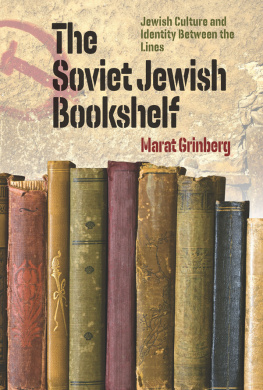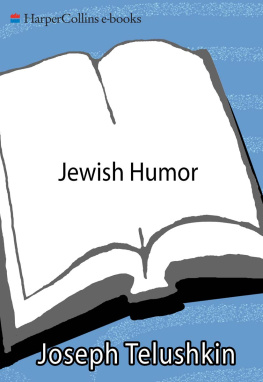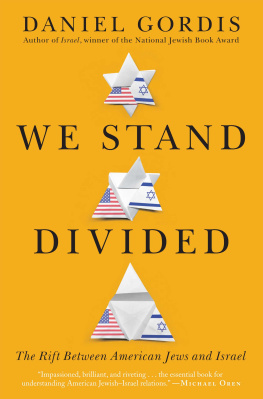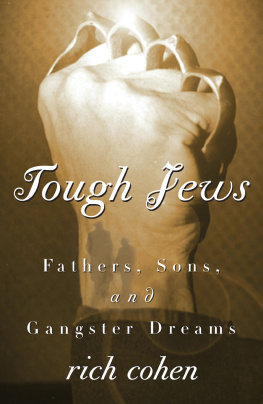
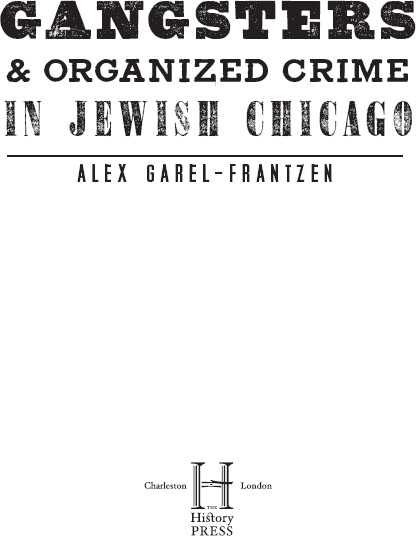
Published by The History Press
Charleston, SC 29403
www.historypress.net
Copyright 2013 by Alex Garel-Frantzen
All rights reserved
First published 2013
e-book edition 2013
ISBN 978.1.62584.661.7
Library of Congress CIP data applied for.
print edition ISBN 978.1.62619.193.8
Notice: The information in this book is true and complete to the best of our knowledge. It is offered without guarantee on the part of the author or The History Press. The author and The History Press disclaim all liability in connection with the use of this book.
All rights reserved. No part of this book may be reproduced or transmitted in any form whatsoever without prior written permission from the publisher except in the case of brief quotations embodied in critical articles and reviews.
To Mom, Dad, Anna and Adam
CONTENTS
ACKNOWLEDGEMENTS
A book would not be complete without thanking those who have helped me along the way. Ben Gibson and The History Press made this bookmy dreama reality. Their love for history runs deep, and it has been a true pleasure to work with them. I wish to thank Scott Bartlett for his guidance, Professor Liebersohn for teaching me research methodology and Professor Leff for serving as my second reader during thesis defense. I also would like to thank all the other teachers who have inspired me to imagine, create and learn throughout my life.
I wish to thank the great library staffs with which I have had the privilege of working: John Hoffmann and Ryan Ross at the Illinois History and Lincoln Collections; everyone at the Main Library who housed me for long afternoon and weekend hours; the University of Chicago Special Collections staff; and those at Spertus Library. I would also like to thank Dr. Joseph Kraus, who shares my passion for Jewish crime. Moreover, Gangsters would not be in print without the Chicago History Museum, whose brilliant collections and photographs helped bring to life this tremendous chapter in Chicago Jewish history.
I am forever indebted to my thesis group; they are an incredible group of individuals, and we supported one another the entire way. A special thanks to my editing partner, Xi Xi, for her thoughtful comments and critiques. Professor Symes led an inspiring thesis seminar and provided us with academic and emotional support through the darkest and lightest times of our journey together. I had the honor and privilege of writing Gangsters under Professor James Barretts advisement; he is an exceptional historian and counselor and an even better person.
I would also like to thank my friends who were, as always, supportive of me as I researched, drafted and redrafted Gangsters. I would not be the person I am without you guys.
Brittany has been there for me every step of the way; we share in a semi-charmed life that I would not trade. Thank you for loving me and all my flaws as I worked through Gangsters.
Lastly, I wish to thank my family, both past and present. Thank you to Bub, Bill, Oll, George, Marshall and Estelle for paving our way and demonstrating why they are the greatest generation. Additionally, I would be nothing without Anna and Adam, who helped to raise me and shape who I am. I owe everything to my mom and dad, whose love, support and wisdom continue to guide me as I move forward in this adventure. And of course, thank you to our dogs, Molly, Max and Fenix, for keeping my lap and heart warm.
INTRODUCTION
In defense of them, they always were enterprising.
Shirley Garel
Over the past few years, I have made a conscious effort to record conversations with my eighty-nine-year-old Jewish grandmother, Shirley Garel, and her ninety-one-year-old brother, Marshall Peiros. In 1921, when Marshall was just six months old, the Peiros family emigrated from Lithuania and settled near Columbus Park in Chicagoan area of second settlement for Jews. In the early spring of 2011, my great-uncle Marshall told a story that inspired the research for this book. Do you know who Al Capone is? he asked.
Well you know I was a very good ballplayer. So we were at Columbus Park and they [the Capone family] were from Cicero. The neighborhood we grew up in, there were very few Jews. It was Irish and Italian. So the Italian guys, I played ball with them a lot. So the Capone brothers, Matt and Ralph, every Sunday theyd come out to play ball and were both pitchersyou know, softballand each had a team out, and wed play against each other. So they invited me there and got me on Matts team. Matt was the nicer guy. Ralph was a real rat. It was the fourth or fifth inning one day, and Ralph was pitching. All of a sudden, some guy gets a hit and slides into secondthe ump calls him safe. So Ralph turns to the ref and slowly puts his hand in his pocket like he had a gun.
So I decided, he paused and laughed, not to go back with those guys again.
His brief memory opened my eyes to the intricacies of urban life and illuminated the level of interaction that existed between various ethnic groups on the streets of Chicago during the early twentieth century. If my great-uncle brushed up against the brothers of Al Capone, which other Jews dealt with the citys gangsters? At once, I became fascinated with the origins of the Jewish community and the intersection of Jews and crime. This study examines the role of crime in shaping the Chicago Jewish community. Broader still, it serves as an exploration of ethnicity and crime and as an addition to the understanding of the immigrant experience in American cities.
Most historians have focused solely on the role of other ethnic groupsItalian and Irishin the Chicago underworld. Indeed, seminal works by authors like Herbert Asbury and John Landesco aided more in understanding the evolution of the broader Chicago gangland than in determining the impact of crime on the Jewish community. Her emphasis on crime as central to defining the New York Jewish experience provided a framework I could consider applying to the Chicago Jewish community and helped me to see the greater importance of criminal events. This book, in part, will serve as a source of comparison between crimes influence in New York and Chicago.
Historians like Mark H. Haller have explored the relationship between ethnicity and crime. In Ethnic Crime: The Organized Underworld of Early 20th Century Chicago, Haller demonstrates that the underworld was a path of social mobility for immigrants and their children. Additionally, he illustrates that there were various ways in which each ethnic group came to participate in criminal activities and establishes that the underworld impacted, both economically and socially, Chicagos working-class ethnic communities. Hallers treatment of Jewish gangsters is brief. Though he underscores that social mobility served as a motivation for Jews, he does not explain how the values of the Jewish community or Judaism shaped these criminals. Hallers most intriguing claim is that the entrepreneurial and professional services of Jews clearly reflected broader patterns of Jewish adaptation to American urban life. However, this is a gross oversimplification of the Chicago Jewish experience. We will see that it was not a homogenous community but rather one marked by distinct waves of German and Eastern European Jewish immigrantseach bringing over particular community and religious values and varying inclinations to assimilate.
Furthermore, it was essential for me to examine the historiography of Jews in Chicago. There are several scholars who have been instrumental in helping me grasp a firm understanding of the communitys history and place my findings in a larger context, including Irving Cutlers
Next page
